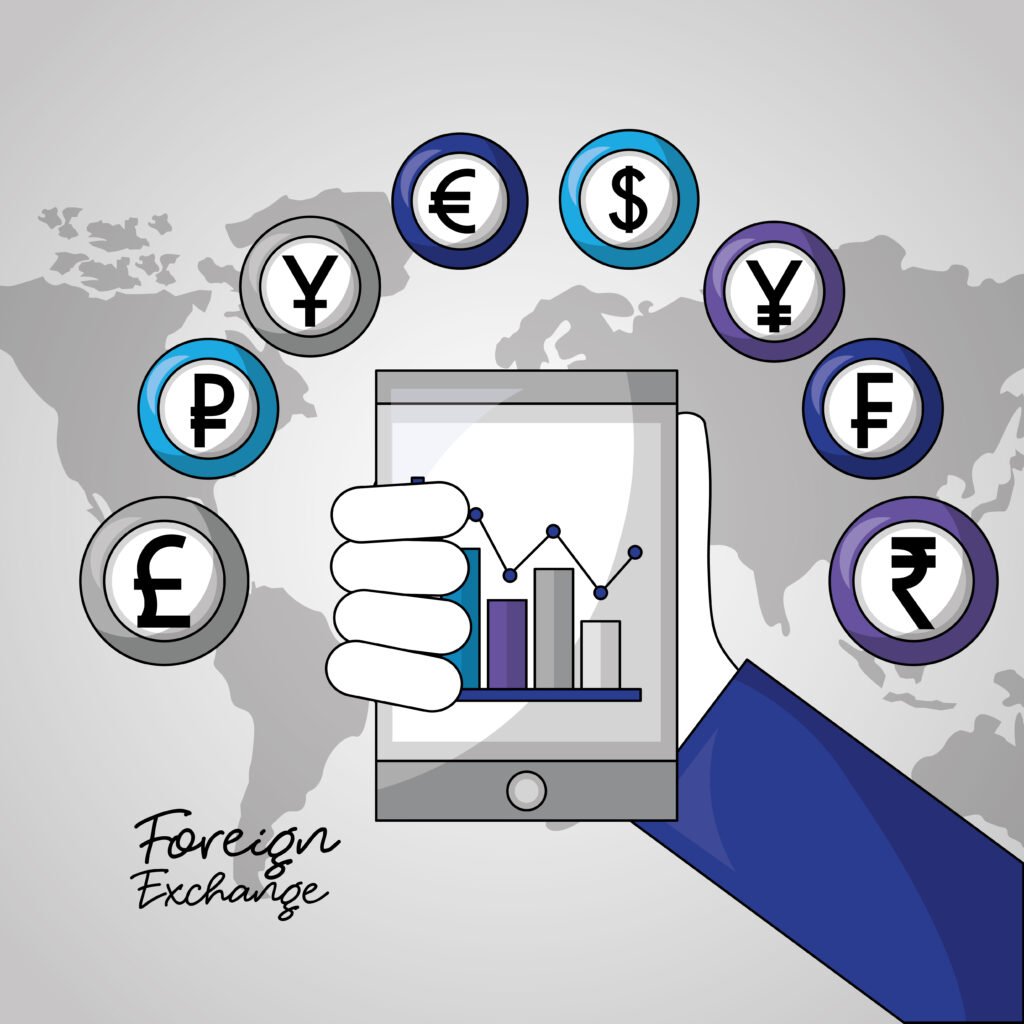The Ultimate Guide to Making the Most of Your Time and Money While Studying Abroad

Studying abroad is one of the most enriching and life-changing experiences a student can have. It goes far beyond lectures and coursework—it’s about stepping into new cultures, building global connections, developing personal independence, and gaining professional exposure that sets you apart in a competitive world. But alongside the excitement, studying in a foreign country also brings real-world responsibilities, especially when it comes to managing your time, budget, and finances in a new economic environment.
This all-in-one guide is designed to help international students maximise their study abroad experience in three vital areas:
- Professional Development: Grow your career prospects while studying through internships, networking, and skill-building opportunities.
- Personal Growth: Embrace the local culture, travel meaningfully, and develop lifelong habits that support well-being and self-awareness.
- Financial Management: Master budgeting, control your spending, and manage currency exchange risks effectively to make your money go further.
Whether you’re in your first semester overseas or preparing for your journey, this guide will equip you with the strategies and insights you need to thrive—academically, personally, and financially. Let’s dive in.
Part 1: Professional Development
While it’s perfectly okay if you haven’t yet determined your career path, gaining some hands-on experience in the professional world can be incredibly valuable. It will not only help you expand your skills, knowledge, and network but also potentially provide a financial boost. This experience can help you build confidence, discover new opportunities, and give you a clearer sense of direction for the future, making it a win-win situation for you.
1. Build a Global Network
Studying abroad exposes you to a diverse group of peers, professors, and professionals. These individuals can become valuable contacts in your future career.
How to make it happen:
- Attend university networking events, career fairs, and alumni meet-ups.
- Participate in student organisations or international student clubs related to your field.
- Exchange contact details and follow up on LinkedIn with a short, professional message.
Why it matters:
Networking abroad builds your global footprint. Employers value candidates who are globally connected and culturally adaptable.
2. Take Up Internships or Volunteer Roles
Applying your academic knowledge in a real-world setting is one of the best ways to learn. Many countries allow international students to take up internships or part-time volunteer positions.
Ideas to consider:
- Apply for internships through your university’s career centre or online portals.
- Volunteer with NGOs or local organisations. It demonstrates social responsibility and initiative.
Bonus: You’ll enhance your CV, improve your soft skills, and gain references who understand your work ethic in an international context.
3. Improve Your Language Skills
Even if your programme is taught in English, learning the local language can help you immerse in the culture and expand your career opportunities.
Tips:
- Take beginner language courses at the university.
- Join language exchange meetups or conversational cafés.
- Use apps like Duolingo or Babbel for consistent practice.
Why it helps:
Multilingual graduates are highly sought after in multinational organisations. It also helps in building stronger personal and professional relationships in your host country.
4. Attend Industry Events and Seminars
Universities abroad often host or promote professional seminars, startup events, and guest speaker sessions. These are goldmines for insight and career development.
Make the most of it:
- Take notes and ask thoughtful questions.
- Introduce yourself to speakers or panellists after the session.
- Follow up via email or LinkedIn to keep the conversation going.
5. Engage in Research Projects
If you’re interested in postgraduate studies or a research-based career, collaborating on academic research is invaluable.
Options include:
- Joining a professor’s ongoing research.
- Proposing your own independent study.
- Publishing a paper or presenting at a student conference.
Long-term benefit:
Research experience demonstrates academic rigour, analytical skills, and commitment to your discipline—traits valued in both industry and academia.
6. Develop a Personal Portfolio
Whether you’re studying design, journalism, engineering, or business, start documenting your work and achievements.
Ideas:
- Build a personal website with your CV and project samples.
- Maintain a blog reflecting your learning journey.
- Record video case studies or presentations for a digital portfolio.
Why it matters:
A well-curated portfolio can make a strong impression when applying for internships, jobs, or graduate programmes.
Part 2: Personal Growth
While professional experiences help you develop essential work-related skills and etiquette, personal life experiences shape you as a human being. Meeting new people, understanding their stories, and learning about different cultures can broaden your perspective. Additionally, discovering new hobbies can not only help combat feelings of loneliness but also contribute to your personal growth, making you more well-rounded and connected to the world around you.
1. Explore the Local Culture
Don’t spend all your time with fellow international students—immerse yourself in the host culture.
Ideas:
- Visit museums, cultural festivals, or local markets.
- Try regional cuisine and learn about local customs.
- Join city tours or cultural exchange clubs.
Why it matters:
It broadens your perspective and enriches your emotional intelligence—making you more open-minded, empathetic, and culturally aware.
2. Travel Smartly
Being in a different country (or continent) means you’re closer to new places. Use weekends and holidays to explore.
Travel tips:
- Plan group trips with classmates to save money.
- Use student travel discounts and local passes.
- Document your experiences with a blog or journal.
Outcome:
Travelling fosters independence, adaptability, and global awareness—skills that matter in today’s international job market.
3. Pursue Hobbies or Learn New Skills
Use your free time to try things you’ve never had the chance to do before.
Examples:
- Take a dance class, join a theatre group, or start painting.
- Learn to cook the local cuisine or take photography walks.
- Enrol in non-academic workshops—coding, video editing, personal finance.
Benefits:
Creative and personal pursuits relieve stress, build confidence, and may even lead to unexpected career interests.
4. Maintain a Balanced Lifestyle
Living independently abroad can be overwhelming at times. Prioritise your mental, emotional, and physical well-being.
Self-care tips:
- Establish a study routine but allow time for breaks and socialising.
- Eat healthily and exercise regularly.
- Seek help from student support services if you feel overwhelmed.
5. Reflect and Set Personal Goals
Take time each month to reflect on what you’ve learned and what you want to achieve. Set small goals—professionally, personally, and academically.
Example goals:
- Attend one industry event per month.
- Make two new local friends.
- Start a blog or update your LinkedIn regularly.
Why it works:
Setting goals keeps you intentional and focused, helping you stay aligned with your long-term vision while enjoying your study abroad adventure.
6. Document Your Journey
Your time abroad is a once-in-a-lifetime experience—record it!
How to do it:
- Keep a travel or academic journal.
- Start a YouTube channel or Instagram page.
- Create a memory box or digital scrapbook.
Why it helps:
Beyond preserving memories, documenting your experience helps you reflect on your growth and articulate your journey during job interviews or applications.
How to Manage Budget and Currency Exchange Risks While Studying Abroad
When discussing life abroad, we often focus on the professional and personal aspects, but one critical factor that requires serious attention is the financial side, particularly currency exchange risks. When you’re living in a foreign country, it’s essential to understand how to manage your finances effectively. This includes budgeting for daily expenses, managing savings, and keeping track of exchange rates. Currency fluctuations can impact the cost of living, and if you’re not prepared, it can lead to unexpected financial stress.
Furthermore, any shifts in currency exchange rates can significantly affect your financial plans. A sudden drop in the value of your home currency or an increase in exchange rates can disrupt your budget and limit your purchasing power. Therefore, it’s important to stay informed about global economic trends and explore ways to minimise currency risk, such as using multi-currency accounts or hedging options. Properly managing these risks ensures that your financial situation remains stable and predictable while living abroad.
Here are a few tips and tricks for you:
Part 1: Budgeting Tips for International Students
Managing finances as an international student is key to ensuring a smooth experience while studying abroad. With different currencies and living costs, having a clear budget is important. This guide provides practical budgeting tips, covering everything from managing expenses to making the most of discounts, helping you stay on top of your finances while focusing on your studies.
1. Set a Realistic Monthly Budget
Begin by estimating your expected monthly income. This could include scholarships, family support, or part-time earnings. Then list your fixed and variable expenses such as:
- Rent or accommodation
- Groceries and dining
- Utilities and internet
- Local transportation
- Tuition and academic supplies
- Health insurance
- Personal spending and travel
Always account for a contingency fund—ideally 10–15% of your total budget—to cover emergencies or unexpected costs.
Budgeting tools to consider:
- Google Sheets or Microsoft Excel
- Apps like Splitwise or PocketGuard for shared expenses
- Mobile banking apps with budgeting features
2. Open a Student-Friendly Multi-Currency Account
Traditional bank accounts may charge high foreign transaction fees. A multi-currency account allows you to:
- Hold multiple currencies simultaneously
- Avoid unfavourable exchange rates
- Minimise withdrawal and conversion fees
- Receive tuition transfers or job payments internationally
Look for platforms that offer no monthly fees, budgeting alerts, and virtual cards for secure online payments.
3. Use Bank Transfers Strategically
Avoid transferring money only when you run out of funds. Instead:
- Plan monthly or quarterly transfers based on currency trends
- Use international payment platforms rather than traditional banks for competitive rates
- Compare transfer fees and delivery times before selecting a provider
Example: Transferring £1,000 via a high-fee bank could cost £40–£60 more than using a dedicated money transfer provider.
4. Take Advantage of Student Discounts
Your student ID can open the door to major savings:
- National discount cards for public transport, cinemas, restaurants, and clothing stores
- International Student Identity Card (ISIC) for discounts across 130+ countries
- Student access to museum tickets, cultural festivals, software licenses, and gym memberships
Research both local and global student discount schemes for maximum benefit.
5. Monitor Your Spending in Real-Time
Keeping track of daily spending ensures you stay within your budget.
- Set weekly or daily limits on banking apps
- Regularly check bank statements for unusual charges
- Cancel unnecessary subscriptions and auto-renewals
Staying informed helps you make better decisions and avoid overdraft fees or debt accumulation.
6. Split Costs with Housemates or Friends
If you’re living with others, use shared expense apps or trackers to split rent, groceries, and travel expenses fairly. This reduces financial stress and improves accountability in shared living situations.
7. Budget for Academic Costs
Beyond tuition, remember to include:
- Textbooks or access to online academic resources
- Course-specific equipment (e.g., lab coats, software licenses)
- Field trips or additional class materials
- Printing and binding costs
Buy second-hand books, borrow from libraries, or purchase digital editions when available to save money.
Part 2: Managing Currency Exchange Risks
Currency exchange fluctuations can significantly affect your finances while studying abroad. In this section, we’ll share strategies to help you manage exchange rate risks, from timing transfers to setting alerts, ensuring you get the most value for your money.
1. Understand How Exchange Rates Work
Currency values fluctuate due to economic, political, and market factors. Even small changes can significantly affect how much you receive when converting large sums.
Example:
- $5,000 at £1 = $1.25 yields £4,000
- $5,000 at £1 = $1.20 yields £4,166
That’s a £166 difference due to timing alone.
2. Time Your Transfers Wisely
Instead of converting everything at once:
- Monitor daily and weekly currency trends using tools
- Convert during favourable rates to maximise value
- Consider transferring a little extra during strong periods to build a financial buffer
3. Set Rate Alerts
Use currency platforms or apps that allow you to:
- Set your desired exchange rate
- Receive notifications when the market reaches that level
- Act immediately to take advantage of the favourable rate
This is especially useful for tuition payments or rent due at fixed times.
4. Use Dollar-Cost Averaging
This strategy involves breaking your total budget into smaller amounts and converting it at regular intervals—say monthly.
- Reduces exposure to sudden drops in the exchange rate
- Provides a more consistent average over time
- Helps plan ahead without worrying about market timing
5. Use Forward Contracts for Larger Transfers
If you know the exact amount and date of upcoming payment, such as tuition or accommodation:
- Secure today’s exchange rate for a transaction at a later date
- Avoid the risk of rate deterioration before payment is due
- Offers budgeting certainty for large or recurring costs
Example: Lock in a rate of £1 = €1.18 for a payment three months away, even if the market drops to £1 = €1.12 by the time of transfer.
6. Think and Budget in Local Currency
Constantly converting foreign prices into your home currency can create confusion and poor financial decisions. Instead:
- Learn the local cost of essentials (food, travel, utilities)
- Set your budget in local currency from the start
- Use local pricing as your financial frame of reference
This helps you adapt faster and make smarter spending choices.
Part 3: Long-Term Financial Habits to Build
Studying abroad is the perfect time to build lifelong financial habits. This section covers essential practices like saving, staying informed about fees, and seeking advice, helping you manage your finances now and in the future.
Build a Habit of Saving
Even if your income is limited:
- Set aside a small portion each month for emergencies or travel
- Use high-interest savings accounts or virtual wallets
- Create financial goals such as saving for trips or graduation costs
Stay Informed on Fees and Rates
Make a habit of reading the fine print:
- Understand ATM withdrawal charges, minimum balance fees, and international usage costs
- Avoid unexpected deductions by reviewing your account statements regularly
Knowledge of banking policies will help you make informed decisions and avoid unnecessary charges.
Seek Financial Advice When Needed
If you’re facing difficulty with budgeting, exchange rates, or financial planning:
- Speak with your university’s student finance counsellors
- Contact your bank’s student support line
- Consult a family financial advisor for large payments or savings strategies
Financial education is a key skill for life—and help is always available when you ask.
Common Frauds for Students Abroad – Introduction:
While studying abroad offers many exciting opportunities, it also comes with potential risks, including various types of fraud. As a student, you’re often a target for scammers who take advantage of your unfamiliarity with the local system. Being aware of common fraud schemes can help you protect yourself and your finances. Below are some common scams international students should watch out for.
- Rental Scams
Scammers often post fake accommodation listings, asking for upfront payments or deposits. They may provide fake or altered photos, convincing descriptions, and promises of a great deal.
Tip: Always view the property in person before making any payments, and be cautious of landlords who ask for payment through untraceable methods like wire transfers or gift cards. - Fake Job Offers
Students are often targeted by fraudulent companies offering fake job opportunities. They may ask for payment for training or for personal information under the guise of a job application.
Tip: Legitimate employers will never ask for money upfront. Research the company and avoid sharing sensitive information like your bank details without proper verification. - Scholarship Scams
Scammers may offer “guaranteed” scholarships, asking students to pay an application fee or provide personal information in exchange for a supposed scholarship.
Tip: Always verify scholarship offers through official university websites or trusted scholarship databases. If it seems too good to be true, it probably is. - Fake Bank or Government Scams
Fraudsters often pose as representatives from banks or government agencies, claiming that there are issues with your account or legal matters that need immediate attention. They may threaten you with fines or arrest unless you pay or share personal details.
Tip: Never give personal information over the phone or email. If in doubt, contact your bank or the government agency directly using official contact details. - Fake or Overpriced Textbook Sales
Many students fall victim to scams when buying or selling textbooks online. Fraudsters may offer textbooks at unrealistically low prices or send counterfeit copies instead of the genuine article.
Tip: Stick to reputable platforms or university-affiliated marketplaces when buying or selling textbooks. Be wary of deals that seem too good to be true. - Identity Theft
Scammers may try to steal your personal information through phishing emails or malicious websites. Once they have your details, they can open accounts in your name or access your bank accounts.
Tip: Be cautious of unsolicited emails or websites asking for your personal or financial information. Use strong, unique passwords and consider using two-factor authentication for added security.
Awareness is key to avoiding fraud while studying abroad. Always verify the legitimacy of any offers, be cautious about sharing personal information, and report any suspicious activity to your university or local authorities. Staying vigilant and informed will help you protect yourself and your finances during your time abroad.
Thriving Abroad Through Smart Planning and Intentional Living
Studying abroad is more than a chapter in your academic journey—it’s an opportunity to grow into a more capable, independent, and globally aware version of yourself. From attending international seminars and building a professional portfolio to exploring new cultures and navigating the realities of foreign finances, every experience shapes your future in meaningful ways.
By investing in both your professional development and personal growth, you gain skills that go far beyond the classroom. Equally, learning how to manage your budget and control currency exchange risks ensures that your international adventure is both sustainable and stress-free.
The key to making the most of your time abroad lies in balance—balancing career ambition with cultural curiosity, self-improvement with self-care, and financial mindfulness with meaningful experiences. Whether you’re networking with industry professionals, discovering a hidden café in your host city, or budgeting for your next weekend trip, remember that each step is part of a larger journey of transformation.
Use your time wisely, manage your finances smartly, and say yes to the opportunities that help you grow. Your study abroad experience is what you make of it—so make it count.


 English
English 



























































































